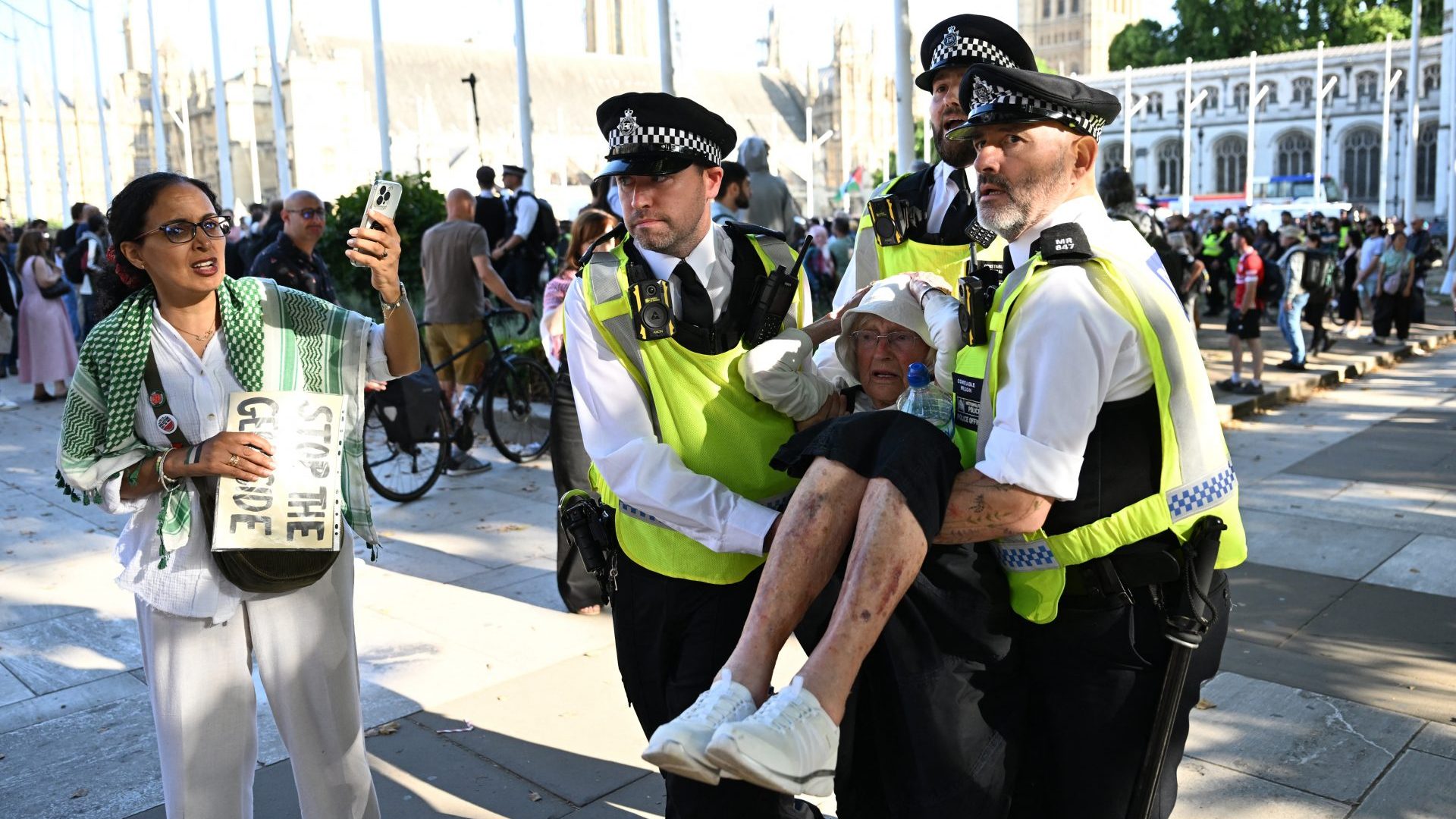Readers who have been with us since the start of the New European/New World journey will know that I am an admirer of Moisés Naím, the Libyan-born former Venezuelan government minister who now works as a writer, broadcaster, thinker and academic in Washington DC.
His book The Revenge of Power, published in 2022, is essential reading for anyone trying to make sense of a world in which autocrats and impunity are on the rise, and democracy and truth in peril. He has now written another book, co-authored with fellow global analyst Quico Toro, which I just read in a single sitting. Thirty pages in, I even switched off my phone, to prevent unwanted distraction or temptation to find out what fresh madness Donald Trump had inflicted on the world.
The title is Charlatans, the sub-title “How grifters, swindlers and hucksters bamboozle the media, the market and the masses”. Trump figures large.
But before we get to the politicians, the book takes us through a whole circus of quack doctors, miracle curers, astrologers, TV evangelical crooks, snake-oil shysters, Ponzi schemesters, crypto grifters, digital farmers and more, all united in the desire to gain wealth from, and power over, the good-hearted and, all too often, the gullible. They explain the psychologies that can make fools of us all – confirmation bias and the desire to dream are prominent – and warn that artificial intelligence has the capacity to scale up charlatanry to a terrifying extent.
Trump first enters the book in earnest, when out-charlataning a charlatan, having his lawyer Roy Cohn – check out The Apprentice movie – use compromising photos of religious charlatan Jerry Falwell Jr to get the biggest Republican-supporting TV evangelical name on the planet to back Trump for president. We then have the story of Trump University, a web of deception and fakery so tangled it is a wonder Trump got as far through his life as he did before the label “convicted felon” could be applied.
My old boss Tony Blair gets a mention, not as a charlatan though – shhhh, haters – but as a victim, when he and Bill Clinton shared a platform with, and so gave credence to, mega-fraudster Sam Bankman-Fried, currently 18 months into a 25-year prison sentence.
Dear reader, you get zero prizes whatsoever for guessing which two British politicians make the grade as charlatans in Charlatans… indeed, given that Moisés Naím is now an associate editor of the New World, might I suggest, dear real editors, that we run his whole chapter on Brexit in these pages? It will bring back bad memories, and freshen up the anger that may have waned a little with time, but it will also at least remind you why Boris Johnson should never be allowed back in public life, and why Nigel Farage needs to be brought down from the heady heights of a leading place in UK polling right now. My my, what short memories we have.
Naim and Toro see Johnson and Farage as the key figures in “a constellation of charlatans aiming to manipulate public opinion for their own good”, the Leave campaign as “a festival of charlatanry”, Brexit as “an outbreak of co-ordinated charlatanism [which] forced one of the most calamitous decisions any democracy has made”.
With Labour finally having decided – about time too – that the gloves need to come off in their fight against Reform UK, they should bear in mind this insight from the book: “The one thing no skilled charlatan will ever do is try to change your mind. Charlatans manipulate us not by getting us to change our prior beliefs but by pandering to them.”
They conclude: “Anyone who doubts whether runaway charlatanism can really change the world should take a closer look at the scandalous history of Brexit. Again and again, senior British politicians manipulated regular people’s dreams of a return to British greatness to further their careers, leaving millions of livelihoods blighted in the process.”
Amen. Brexit alone should disqualify Farage from holding any serious office, and Labour should never tire of saying so.

It was a good week for single-sitting reading of brilliant books. On the journey back from the Labour conference in Liverpool, I just about had time to read a fantastic – and short – German book, Wenn Russland Gewinnt, by international politics lecturer Carlo Masala.
It is half geopolitical analysis, half novel, looking ahead to the consequences of Ukraine being forced to make a land-for-peace deal in the near future. I waxed lyrical about it on The Rest Is Politics, urging an English language publisher to get it translated, fast.
We ended up editing that bit out, because it turned out that Atlantic Books had already published it in English. Indeed, if you look it up on Amazon (but then get it from an independent bookshop, obviously), the link is now headlined “If Russia wins: ‘an amazing book’ – Alastair Campbell on The Rest Is Politics.” Believe me, it is.
At the risk of becoming a poor man’s Matthew d’Ancona, from books to TV, and The Hack, Jack Thorne’s dramatisation of the phone-hacking scandal, starring David Tennant as Guardian journalist Nick Davies, Toby Jones as editor Alan Rusbridger and me – blink and you’ll miss it – as me. If the Charlatans book might rile you up about Brexit, The Hack will get your hackles up about the criminality, corruption and sheer mendacity of the Murdoch empire, and, sadly, the feeling that they largely got away with it. One of the closing frames tells us Rebekah Brooks got an eight-figure payoff when she left the company, to which she returned in a more senior position a year later.
The Hack also exposes the corrupt relationship between press and police, and with the second part of the Leveson Inquiry having been shelved, hard to escape the feeling that they got away with that, too. Shameful stuff.
To a wonderful funeral for a top man, human rights legal expert Conor Gearty. With that name, you might guess he was an Irish Catholic, and indeed he was, and a regular worshipper at Our Lady Help of Christians in Kentish Town.
It is a pretty big church, but it was standing room only, downstairs and up. The priest, Father Allan Alvarado Gill, kicked off proceedings by recalling that he had once told his flock that if he ever managed to fill the top part of the church as well as the bottom for a mass, he would feel he could retire… “So goodbye,” he added, lightening the mood in a way Conor, one of the funniest and liveliest men you could ever want to know, would have appreciated.
His widow, Aoife, and his four children, all spoke, beautifully, with plenty of laughter amid the tears, and Aoife concluded with the rather splendid observation that “he wasn’t perfect, but he was a good man”.
Her 91-year-old uncle, Father Brian Nolan, delivered the homily, and related it to The Beatitudes, which had been read earlier in the funeral, and made sure nobody left the church without reflecting that what was happening in Ukraine, and in Gaza, went against the message Jesus sought to deliver in those words. Aoife and the family really did him proud.
And there was something wonderfully Conor about the fact that the wake at the family home had to be cancelled, because the ceiling fell in on the sitting room a few days before the funeral. So instead the hundreds who gathered just spilled out into the rainy street and stood around for ages chatting, holding up traffic, confident nobody would dare honk their horns when it was so obviously a funeral for a very popular man. It was so Irish, he would have loved it.




